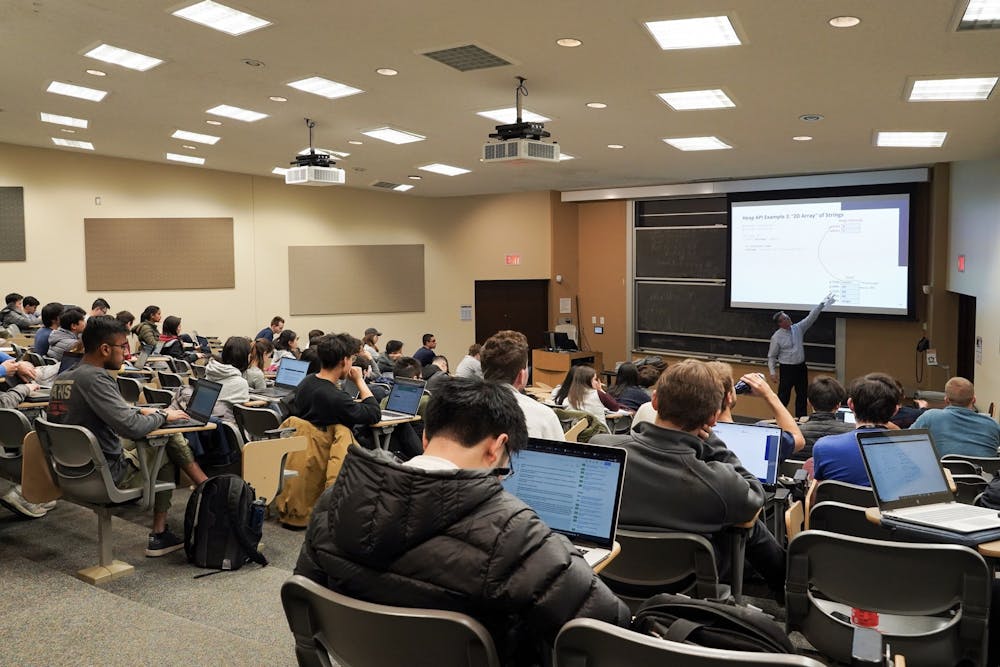
Earlier today, Penn's administration released its plan for the Fall 2020 semester, announcing that we would be able to return to campus in a hybrid in-person and online model. With large lectures being online and small, in-person classes delivered in a physically distant manner, the University is committed to creating an experience that is, in part, face-to-face.
Though we are hearing about this only now, it hardly comes as a surprise as other Philadelphia schools, Drexel University and Temple University indicated similar plans several weeks ago. Many other universities around the country are planning to partially reopen their campuses to grant students the opportunity to have a somewhat “typical” college experience, though not without significant efforts to curb the spread of the coronavirus.
Penn's announcement stated that regular testing, contact tracing, mask wearing, and physical distancing were going to be enforced over the semester, with dedicated spaces set up for COVID-positive students and increased space for students living on campus. It’s comforting to know that there are going to be safety standards in place for campus life, but the student body shouldn’t operate under the impression of safety. Returning to campus is a risk. It’s a risk that most of us are probably willing to take, but nonetheless, it’s a risk.
Despite what the federal government is trying to tell us, the COVID-19 pandemic is an ongoing threat that will not cease anytime soon. Though we are getting closer, there is still no vaccine to confer immunity to the coronavirus, and cases are rising across the nation, with some states setting records for the number of new confirmed cases in a day. Frustratingly, bungled, anti-intellectual, and anti-science rhetoric from the President is not helping to guide an adequate and evidence-based approach to preventing the spread of the virus.
Returning to campus is an exciting prospect, and I am looking forward to seeing friends once again, even if that means I have to stand six feet away and wear a mask. But evidence suggests that putting students together on a college campus is not a recipe for success. You would be wrong if you expect 10,000 18-22 year olds living in one place to exercise safe COVID-19 practices. The familiar environment of campus will likely send us into our old college habits, and this involves a myriad of close encounters and perfect breeding grounds for the virus.
In Jacksonville, FL, sixteen women all got COVID-19 at the same bar at the same time in one night. South Carolina, one of the first states to open bars, coffee shops, and restaurants, is now seeing an unprecedented surge in COVID-19 cases. Bars, house parties, and frat parties are quintessential parts of the Penn experience for many, but they may very well become hotspots for COVID-19, leading to potential on-campus outbreaks for both students and faculty.
On the academic front, many professors are concerned for their own well-being if asked to be exposed to students every day. At the same time, many students are concerned that another semester of online coursework might limit the full potential of their education. Regarding university sports, Clemson University announced that 28 people contracted the virus in its athletics department, including 23 people on the football team. This morning, the state of Texas announced that it is pausing its reopening efforts following their dramatic rise in cases, and other states are likely to follow suit.
The writing is on the wall. We are in for a semester of ups and downs, likely outbreaks, and possible deaths. In the COVID-19 era, things move at an unprecedented rate, so it’s impossible to predict the state of the semester. If the past three months are any indication, it will be a difficult adjustment and people will get sick. Part of the onus is on us, the student body. It is our responsibility to act with integrity and empathy for each other. This isn’t about us. We ought to do the right thing, listen to experts and each other, and do our best to keep one another safe. We are being granted a privilege to be able to return to campus life, but if we don’t do our part, that privilege can and will be taken away from us.

VARUN SARASWATHULA is a rising College junior from Herndon, V.A. studying the Biological Basis of Behavior and Healthcare Management. His email is vsaras@sas.upenn.edu.
Have opinions of your own you would like to share? Submit a guest column.
The Daily Pennsylvanian is an independent, student-run newspaper. Please consider making a donation to support the coverage that shapes the University. Your generosity ensures a future of strong journalism at Penn.
Donate



